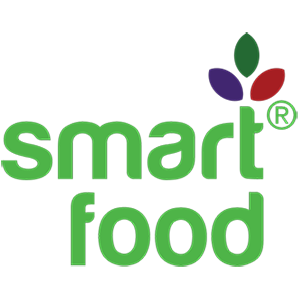Read Full article by Dr Chandrakanth S. Pandav @Outlook Photo Credit: Global Health Strategies
Severe malnutrition is a silent emergency which needs to be tackled in mission-mode. POSHAN Abhiyaan of the government presents us with a unique opportunity to combine forces and accelerate our efforts to address the continuing malnutrition. To this end, it is critical to identify, adopt, and implement solutions/ strategies which are cost-effective and scalable.
Food Fortification: Securing our diets
Micronutrient deficiencies and a diet bereft of essential vitamins and minerals (vitamins A and D, Iodine, iron, folic acid and zinc) can have devastating impact on our overall physical and
cognitive development, leading to anemia, poor growth in children, loss of productivity and even deaths if unaddressed.
Food fortification is one of the simplest and most sustainable measures which is not only cost-effective, scientifically proven, and globally recognized but also helps reach wider and vulnerable populations through existing food systems. Till date, food fortification remains little-known. In order to promote it, Food Safety and Standards Authority of India (FSSAI) in 2018 made food fortification mandatory for food processing brands and introduced a new +F label for fortified foods. There is a need for industry brands to consider food fortification as an important guideline. Given their influence, industry partners must help raise awareness through compelling and human-centric communications so that there is higher demand towards making such a switch.
Combining Evidence and Technology
With disaggregated and real time data from the ground we can design evidence-based initiatives and policies. By enhancing research and development, we can identify more local and sustainable solutions which can be adopted by public and private sectors. Using nutritional trackers and analyzers for monitoring and reporting could be cost-effective and timesaving. In today’s day and age, telemedicine and remote diagnosis have strengthened health-care delivery. We must empower our frontline health workers with IT-based tools like the Common Application Software (ICDS-CAS), which was developed under POSHAN Abhiyaan to capture data on weight and height of children, track progress at new Anganwadi Centers, distribution of Take-Home Ration, amongst other areas. Further,the multiple media platforms which we use in our everyday lives such as Facebook, Twitter, Instagram, WhatsApp, SMS can be used judiciously to connect with stakeholders, promote knowledge
sharing, and facilitate a steady exchange of ideas and information.
Value of Sustainable Food Systems
India’s food and agriculture policies have always looked at ensuring steady access to staple grains, especially rice and wheat, with the goal to address the problem of hunger. In doing so, the more nutritious grains, such as millets and other coarse cereals, and pulses have often been under-prioritized. Imbalance in protein, vitamin and micronutrient supply in the food system is a major cause of the high incidence of malnutrition in India. For a robust food system, we need to identify opportunities to link agricultural production and consumption, strengthening nutritionaccess for individuals and households. This will require various actors within the food system – policy makers, farmers, wholesalers, food vendors and consumers – to synergize efforts for ensuring safe and healthy food storage and transport. This is critical in India’s mission to meet global commitments like the Sustainable Development Goal (SDG) 2 of Ending Hunger, as well as many other related SDGs.
Tapping into Traditional and Local knowledge
As mentioned above, the dominant practice of cultivating rice and wheat over cereals like finger millet, pearl millet and sorghum, has led to a shift in diets – nudging people further away from these cereals which have higher nutritional quality, involve better use of resources, and lower sensitivity to climate variability. This has led to a loss of traditional food habits that had
evolved over generations. To address these gaps we must encourage intra-state knowledge sharing and capacity building at Zilla Parishads at the district level.

